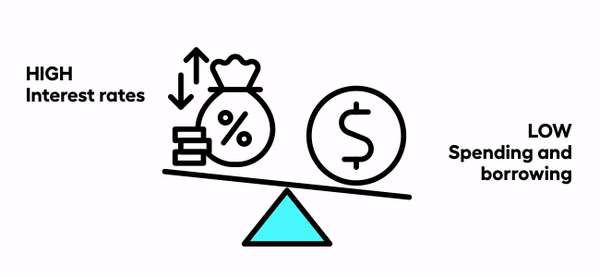Personal loans are a popular financial tool that can help individuals meet various financial needs, from consolidating debt to funding major life events. Understanding the nuances of personal loans, including their features, eligibility criteria, and the application process, is essential for making informed borrowing decisions.
Key Takeaways
- Unsecured Financing: Personal loans are typically unsecured, meaning they don’t require collateral.
- Fixed Repayment Terms: They come with fixed interest rates and repayment schedules.
- Flexible Usage: Funds can be used for various purposes, such as medical expenses, home renovations, or travel.
- Eligibility Factors: Lenders consider credit score, income, employment stability, and existing debt when evaluating applications.
- Interest Rates: Rates can vary based on the lender and the borrower’s creditworthiness.
What Is a Personal Loan?
A personal loan is a type of unsecured loan offered by banks, credit unions, and online lenders. Unlike secured loans, personal loans do not require collateral, making them accessible to a broader range of borrowers. They are typically used for personal expenses such as medical bills, home improvements, or consolidating high-interest debts.
Features of Personal Loans
- Loan Amount: Varies by lender and borrower eligibility.
- Interest Rates: Can be fixed or variable; typically range from 10% to 24% per annum.
- Repayment Tenure: Generally between 12 to 60 months.
- Processing Fees: Usually between 0.5% to 3% of the loan amount.
- Prepayment Charges: Some lenders may charge for early repayment.
How Do Personal Loans Work?
When you apply for a personal loan, the lender assesses your eligibility based on factors like credit score, income, and employment history. If approved, you receive the loan amount in a lump sum, which you repay in fixed monthly installments (EMIs) over the agreed tenure.
Interest Calculation Methods
- Flat Rate: Interest is calculated on the entire loan amount.
- Reducing Balance: Interest is calculated on the outstanding loan balance, making it more cost-effective over time.
Eligibility Criteria for Personal Loans
To qualify for a personal loan, you typically need to meet the following criteria:
- Age: Generally between 21 and 60 years.
- Income: A minimum monthly income, often around ₹25,000.
- Credit Score: A score of 750 or above is considered ideal.
- Employment: At least 1 year with the current employer for salaried individuals; 2–3 years in business for self-employed individuals.
- Debt-to-Income Ratio: Should not exceed 50%.
Documents Required for Personal Loan Application
To apply for a personal loan, you will need to provide:
- Identity Proof: PAN card, Aadhaar card, passport, etc.
- Address Proof: Utility bills, rental agreement, etc.
- Income Proof: Salary slips, bank statements, ITR, etc.
- Employment Proof: Offer letter, employment certificate, etc.
Interest Rates and Charges

Interest rates on personal loans can vary based on the lender and the borrower’s creditworthiness. As of June 2025, some banks have reduced their lending rates:
- SBI: Reduced lending rates by up to 50 basis points following an RBI repo rate cut .
- Bank of Maharashtra: Reduced retail loan rates by up to 50 basis points .
These reductions can make borrowing more affordable for consumers.
How to Apply for a Personal Loan
Applying for a personal loan involves the following steps:
- Check Eligibility: Use online calculators to assess your eligibility.
- Compare Lenders: Evaluate different lenders based on interest rates, processing fees, and terms.
- Gather Documents: Prepare all necessary documents.
- Submit Application: Apply online or visit a bank branch.
- Approval and Disbursal: Upon approval, the loan amount is disbursed to your account.
Common Uses of Personal Loans
Personal loans can be used for various purposes, including:
- Debt Consolidation: Combining multiple debts into a single loan with a lower interest rate.
- Home Renovations: Funding repairs or improvements to your home.
- Medical Expenses: Covering unexpected medical bills.
- Wedding Expenses: Financing wedding-related costs.
- Travel: Paying for vacations or travel-related expenses.
Pros and Cons of Personal Loans
Pros
- No Collateral Required: Reduces risk for the borrower.
- Fixed EMIs: Predictable monthly payments.
- Quick Disbursal: Funds can be disbursed quickly, sometimes within hours.
- Flexible Usage: Can be used for a variety of purposes.
Cons
- Higher Interest Rates: Compared to secured loans.
- Processing Fees: Can add to the overall cost.
- Eligibility Criteria: Stringent requirements can make approval challenging for some.
How to Choose the Right Personal Loan for Your Needs?
Description:
This article would guide readers on the critical factors to consider when selecting a personal loan. It would compare interest rates, repayment tenures, fees, and types of lenders (banks, NBFCs, fintech platforms). It would also provide a checklist to evaluate personal financial health, including credit score analysis, existing debt obligations, and future repayment capacity. Case studies or borrower personas could illustrate how different loans suit different needs (e.g., home renovation vs. medical emergency).
Personal Loan vs. Credit Card: Which Is Better for Emergency Funds?
Description:
This post would compare personal loans and credit cards, especially in the context of funding emergencies. Topics would include interest rates, repayment flexibility, approval time, and total cost of borrowing. It would explain scenarios where one might be more beneficial than the other and include pros and cons of each. Real-life usage scenarios and financial planning tips would also be included.
Top 10 Reasons to Consider a Personal Loan in 2025
Description:
Explore the most common and strategic reasons people take out personal loans, from consolidating high-interest debt to financing large purchases. This article would elaborate on how using a personal loan for each purpose can be cost-effective, especially in today’s evolving interest rate environment. It would also include tips for responsible borrowing.
What Affects Your Personal Loan Eligibility and How to Improve It?

Description:
This topic would cover in detail the various factors lenders use to determine personal loan eligibility—credit score, income, job stability, age, existing debt, and more. It would offer actionable strategies for improving each factor, such as increasing income, maintaining a low credit utilization ratio, and building credit history. The article would also explain eligibility calculators and how to use them.
Understanding Interest Rates on Personal Loans: Fixed vs. Reducing Balance
Description:
An in-depth breakdown of how personal loan interest is calculated using different methods. The article would include examples of EMIs calculated using flat-rate and reducing-balance methods, demonstrating the cost difference over time. It would also explain how banks disclose interest rates and how borrowers can calculate the real effective rate (APR).
Best Ways to Use a Personal Loan for Financial Growth
Description:
Many people think of loans as liabilities, but this article would explore how personal loans can be used strategically to improve one’s financial standing—such as refinancing credit card debt, funding a professional certification, or making a smart home upgrade. It would feature success stories, cautionary advice, and financial management tips post-disbursement.
Hidden Charges in Personal Loans: What to Watch Out For?
Description:
Discuss the lesser-known fees and charges that can significantly increase the cost of a personal loan: processing fees, prepayment penalties, late payment charges, GST, insurance premiums, and documentation charges. The article would advise on reading the fine print and asking the right questions before signing a loan agreement.
How Does Your Credit Score Impact Personal Loan Approval?
Description:
This article would focus on the link between credit score and loan approval. It would explain credit score ranges, what factors go into calculating the score, and how it affects the interest rate offered. The content would also provide tips for quickly improving a credit score before applying for a loan.
Government Schemes and Low-Interest Personal Loans: Are You Eligible?
Description:
Covering central and state government-backed schemes that offer subsidized personal loans or emergency credit (like Mudra Yojana, PMEGP, Stand-Up India). The article would explain eligibility, application processes, target beneficiaries, and how to access these schemes through official channels.
What Happens If You Default on a Personal Loan?
Description:
This article would explore the legal, financial, and credit-related consequences of not repaying a personal loan. It would cover the lender’s recovery process, loan restructuring options, impact on the CIBIL score, and the long-term consequences of a default. The piece would include expert advice on how to avoid default and what to do if you’re already behind on payments.How to Repay a Personal Loan Faster Without Hurting Your Finances
Description:
This article would explore techniques like part prepayments, increasing EMIs annually, bi-weekly payments, and balance transfers to reduce loan tenure and interest burden. It would include savings simulations, caution against hidden foreclosure charges, and discuss whether early repayment is financially wiser than investing surplus cash.
Personal Loan for Self-Employed Individuals: Challenges and Solutions
Description:
A guide specifically tailored to freelancers, consultants, and small business owners who often struggle with inconsistent income and strict documentation requirements. This piece would explain how to improve approval odds, showcase income proof creatively, and choose lenders who specialize in self-employed loans.
The Role of Personal Loans in Debt Management and Financial Restructuring

Description:
This article would show how personal loans can be used strategically to consolidate high-interest debts like credit cards or payday loans. It would walk readers through the math of savings, how to negotiate with creditors, and common pitfalls like refinancing without reducing spending habits.
Digital Lending Apps vs Traditional Banks: Where Should You Take a Personal Loan From?
Description:
Compare and contrast digital fintech lenders with banks/NBFCs. It would look at documentation ease, approval times, transparency, customer support, and risks (such as predatory lending or data misuse). Regulatory issues and tips to verify a legal lender via RBI/NBFC registration would also be discussed.
How to Use a Personal Loan to Build or Repair Your Credit Score
Description:
Many borrowers don’t realize a personal loan can improve credit if used responsibly. This article would explain how consistent EMI payments positively impact credit history. It would also advise on using small-ticket personal loans or credit-builder loans to move from poor to fair/good credit brackets.
Should You Take a Personal Loan to Invest in Stocks or Cryptocurrency?
Description:
A controversial but trending topic—this article would analyze the high-risk strategy of borrowing to invest. It would cover the dangers of market volatility, EMI stress, margin calls, and mental health. A balanced view with expert opinions and case studies (positive and negative) would offer perspective.
How Rising Interest Rates Affect Your Existing Personal Loan and What You Can Do
Description:
With inflation and monetary policy changes, interest rates can rise. This article would show how floating-rate loans are affected and give advice on refinancing, switching to fixed-rate loans, or consolidating debts before rates increase. Charts, RBI repo rate history, and projections could support the content.
Personal Loans for Women: Special Schemes, Offers, and Benefits
Description:
Highlight government and private lender initiatives that offer special personal loan terms for women—lower interest rates, easier eligibility, and more. Include financial literacy resources and tips for single mothers, entrepreneurs, or homemakers applying for credit independently.
Understanding the Tax Implications of a Personal Loan in India
Description:
Many assume personal loans offer tax benefits. This article would clarify when and how tax Deductions apply—such as using the loan for home renovation, business, or education. It would explain what documentation is needed to claim these deductions and how to plan for tax-smart borrowing.
Top 7 Mistakes to Avoid When Taking a Personal Loan
Description:
This listicle-style post would highlight common errors like not comparing lenders, ignoring the fine print, over-borrowing, not considering debt-to-income ratio, poor EMI planning, skipping credit reports, and misunderstanding terms like “flat rate.” Each mistake would include a real-world example and a better approach.
Also Read : What Is University Learning And How Does It Work?
Conclusion
Personal loans are a versatile financial tool that can help individuals manage various financial needs. By understanding the features, eligibility criteria, and application process, you can make informed decisions and choose the loan that best suits your requirements.
FAQs
What is the minimum credit score required for a personal loan?
Most lenders require a credit score of 750 or above for favorable terms.
Can I apply for a personal loan if I am self-employed?
Yes, self-employed individuals can apply, provided they meet the lender’s criteria.
How long does it take to get a personal loan approved?
Approval times vary; some lenders offer instant approval, while others may take a few days.
Are there any prepayment penalties?
Some lenders charge prepayment penalties; it’s essential to check the terms before applying.
Can I use a personal loan for business purposes?
Personal loans are typically for personal expenses; business loans are more suitable for business needs.
What happens if I miss a loan EMI?
Missing an EMI can lead to late fees and negatively impact your credit score.
Can I apply for a personal loan online?
Yes, many lenders offer online applications for personal loans.


